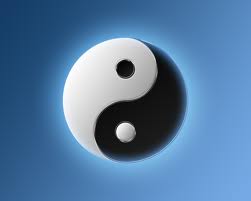|
Historically, the South was not very accepting of racial minorities, and Macon was certainly part of the Deep South.
During the twenty plus years that our family lived there, it was a clearly segregated society with clear lines separating
White and Colored People. Public facilities such as toilets and drinking fountains were clearly labeled, Whites Only and Colored
Only. Schools and theatres were racially segregated. Colored people were consigned to ride in the back of the bus.
As
a child, I really did not know much about white supremacist organizations such as the Klu Klux Klan until one year there was
a proposal to allow Colored People to sit in the balcony of the Rialto Theatre, a Whites only theatre. The KKK had a rally
and march one evening in front of the theatre, and the proposal was quickly abandoned. I was na´ve or unaware of any other
threats of racial violence, but I was well aware that Colored People were second-class citizens. For example, in any store
the clerks always waited on whites before they waited on Negroes, even if the latter had been there first.
While mother
and father harbored no racial antagonism against Negroes, they were probably influenced by the social consequences of white
supremacist attitudes of Southern society. They saw that the power and control was in White hands, and that Negroes always
had the lowest status. They recognized that this situation was so because White society treated Colored People unfairly. Mother
sometimes would cite the prejudicial way in which Whites treated Colored People as a warning to use that white racist attitudes
can be used against us as well.
Because we were neither White nor Colored, and as we constituted only one family,
we were considered White for most purposes. As Chinese, we were sometimes targets of racial curiosity and ridicule, although
we certainly did not suffer the severity of discrimination, and certainly not the level of violence, faced by Colored People.
In fact, many White People, especially those with some education, treated us kindly and with concern. Nonetheless, they could
not understand how we saw the world as they knew little about Chinese values and upbringing. For the most part, the contact
was superficial or even patronizing.
Since our family was the only Chinese, or even Asian, for that matter, family,
we were treated as individuals rather than as a group. While we were second-class citizens in some respects, and were sometimes
taunted or teased as slant eyed foreigners with strange customs, we were not nearly as oppressed as were the Negroes. Thus,
whereas Colored people had to adhere to strict segregationist policies in which there were separate drinking fountains, public
restrooms, schools, theaters, and sections on public buses for Whites and for Colored, we were allowed to use the facilities
reserved for Whites. Still, we felt the sting and fear of racial oppression, especially because from an early age, mother
continually cautioned us about how discriminatory Whites were against Chinese. For example, during the Second World War, children
would come by the laundry and taunt them with cries of Chinese eat rats.
We were taught to expect prejudice and how
to react to it. She probably was a bit more paranoid than was warranted, but it was certainly understandable how she would
have such a perception. She wanted to protect her children by erring on the safe side.
Interestingly, some Negroes,
or "Colored People" as they were labeled in the Deep South in that era, were as guilty as Whites when it came to showing racial
hostility of Chinese. Some of the Negro customers would harass, tease, or even make threats. We learned to ignore taunts,
some which were made more out of ignorance than hostile intent, because we were powerless to object.
Unless we looked
in the mirror, we would probably not know we were different physically from whites and blacks. However, people around us,
white as well as black, frequently made it abundantly clear to us that we were different. Some of this attention involved
honest curiosity, although some of it may have been insensitive. At other times, we were belittled or ridiculed for being
Chinese.
|
